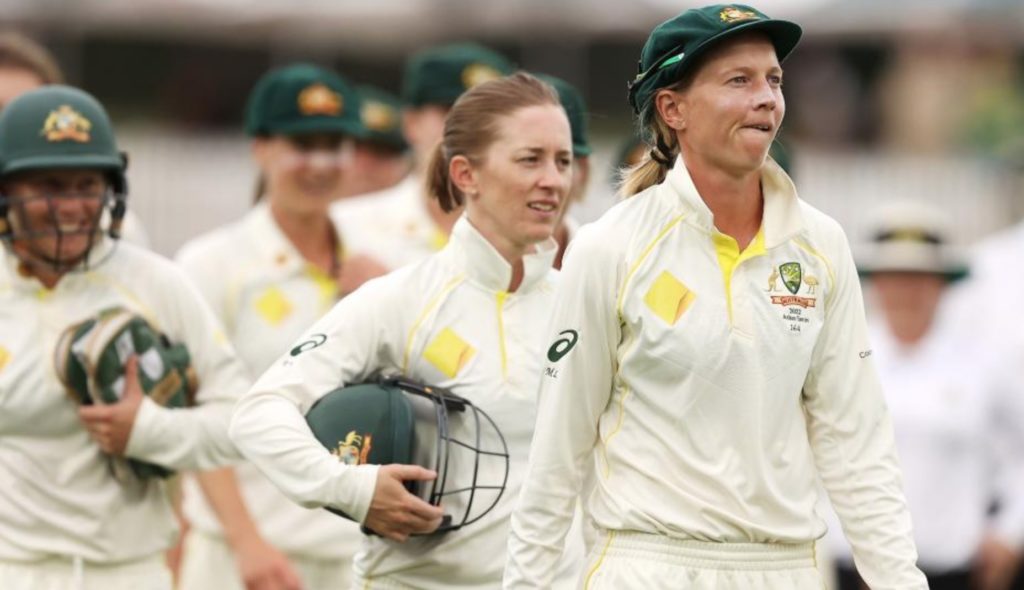ICC chairman Greg Barclay has questioned whether the Test format will form part of the future “landscape” of female cricket.
The five women’s Tests held in the past five years, all played over four days, have ended in draws.
England women’s captain Heather Knight has called for five-day Tests, as is the case in men’s international red-ball cricket, to allow more time for a positive result.
“Most people would say five days are required,” Barclay told BBC Radio’s Test Match Special on Friday in an interview broadcast during the ongoing first men’s Test between England and New Zealand at Lord’s.
“Absolutely, if they are going to play it my personal view is they should have five days to play it in,” the New Zealander added.
Only England, Australia and India have played a women’s Test since 2017, with a thrilling drawn Ashes match in January the most recent red-ball international.
England, however, are scheduled to play South Africa over four days in June, in what will be the Proteas women’s first Test since 2014.
The Ashes draw went all the way to the last ball, prompting many pundits to call for more women’s Tests.
But such matches can be expensive to schedule and women cricketers have fewer opportunities to play long-format games at domestic level than their male counterparts.
“If you look strategically at the way cricket is going there is no doubt that white-ball cricket is the way of the future,” Barclay added. “That is the game sought after by fans. It is where broadcasters are putting their resources. It is what is driving the money.
“To play Test cricket you have got to have structures domestically. They don’t really exist in any of the countries at the moment. I can’t really see women’s Test cricket evolving at any particular speed.
“That not to say any countries that choose to play Test cricket can’t do so. But I don’t see it being any part of the landscape moving forward to any real extent at all.”
© Agence France-Presse







